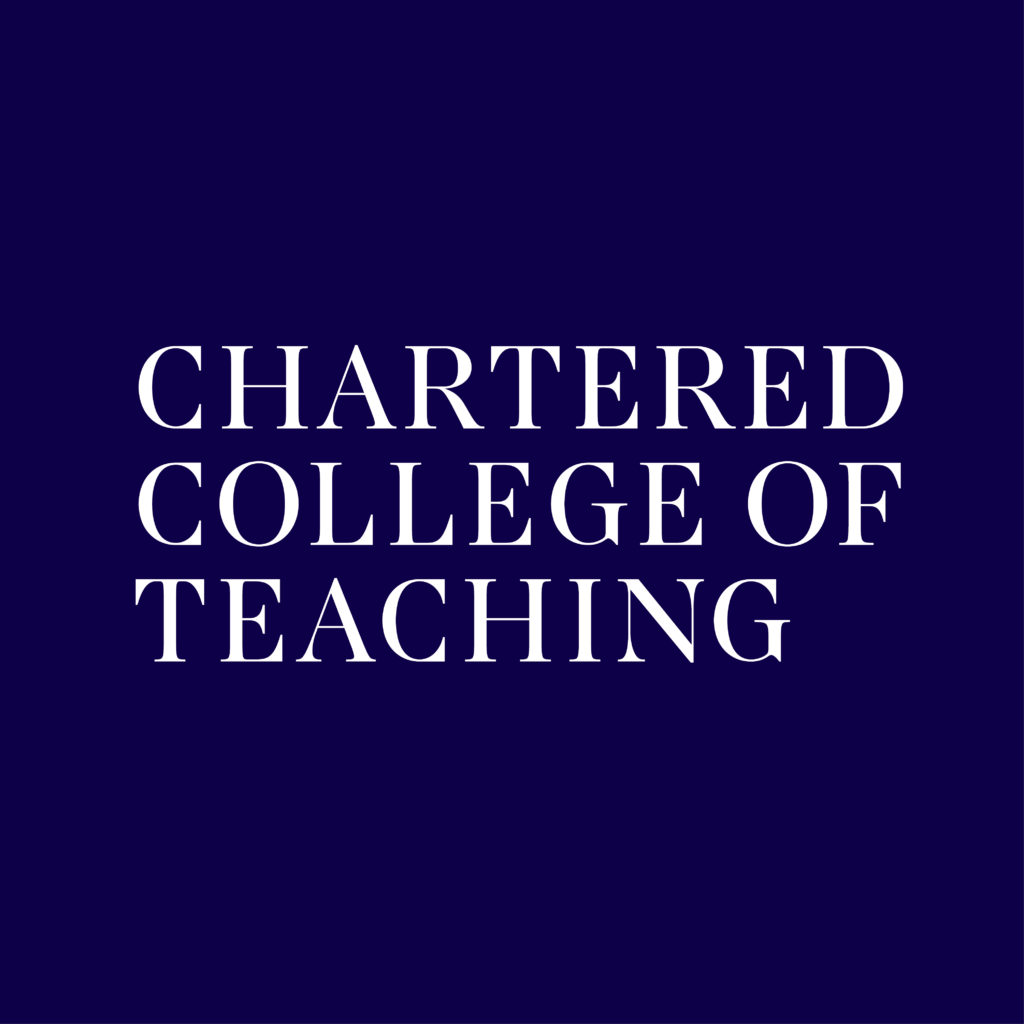
Adam Kohlbeck, Deputy Headteacher, Birkbeck Primary School, UK Why is feedback worth our thinking? In 2016, Ofsted produced its report ‘Eliminating unnecessary workload around marking’, placing teacher workload at the forefront of leadership thinking. For many, written marking as a means of post-lesson assessment is not something that has ever been questioned. The Education Endowment […]

AIMEE WILLIAMS, DIRECTOR OF SCHOOL IMPROVEMENT, THREE SPIRES TRUST, UK Introduction In the ever-evolving landscape of education, the impact of influential figures like Dylan William cannot be overstated. For the uninitiated, his influential work on feedback in the classroom emphasises the importance of formative assessment as a powerful tool for improving student learning and ‘moving […]

SARAH CUNLIFFE, LEON WALKER AND REBECCA MORRIS, UNIVERSITY OF WARWICK, UK Do I really know enough about the understanding of my pupils to be able to help each of them? It was the summer of 2015 and we (Sarah and Leon) had just read this excerpt from Inside the Black Box (Black and Wiliam, 1998, […]

EMOKE MIHALY, THE ENGLISH MODERN SCHOOL WAKRA, DOHA, QATAR Introduction In my decade-long journey as a primary school teacher within international school settings, I have explored the different aspects of providing effective feedback to young students in order to improve their learning. Building on Hattie’s (2009) influential meta-analysis, which underlines the impact of feedback on […]

AMARBEER SINGH GILL, TEACHER EDUCATOR, AMBITION INSTITUTE, UK JENNIFER CURRAN, RESEARCH SCIENTIST, AMBITION INSTITUTE, UK We [often] question the judgement of experts whenever we seek out a second opinion on a medical diagnosis. Unfortunately, when it comes to our own knowledge and opinions, we often favor feeling right over being right… We need to develop the habit […]

Bev Coombridge, Doctoral Student, University of Buckingham, UK; Initial Teacher Educator, Bethlehem Tertiary Institute, New Zealand The development of student agency is increasingly recognised as a crucial element in effective education (Sirkko et al., 2019; Cook-Sather, 2020; Ruef, 2021), particularly in the formative years of primary school (Vaughn, 2018). Research has consistently shown that formative […]

LYNSEY ANNE MEAKIN, SENIOR LECTURER IN EDUCATION, INSTITUTE OF EDUCATION, UNIVERSITY OF DERBY, UK Traditional assessment methods often fall short in capturing students’ true abilities and fostering authentic learning experiences, and the introduction of AI (artificial intelligence) tools further complicates the task of accurately assessing genuine student learning. This article will provide a brief explanation […]

CHRIS PASSEY FCCT, DEPUTY HEAD, KIMICHI SCHOOL, UK Kimichi School is a small, music-specialist independent school in Birmingham, UK founded by Sally Alexander MBE in 2014. Background The introduction of a National Curriculum and, therefore, GCSEs was overseen by the Secretary of State for Education (1986–89) at the time, the now-Lord Baker. In an article for […]

SANDRA MILLIGAN AND ANGELA POLLOCK, UNIVERSITY OF MELBOURNE, AUSTRALIA Background and purpose of this paper In Australia in 2012, general learning competencies (referred to in other places by terms such as 21st-century skills, transferable skills or transversal skills) were formally incorporated into the national curriculum and subsequently adopted at every level, in all Australian schooling jurisdictions. […]

JAYSON COX-DARLING, LEAD TEACHER FOR SEND, ST REGIS CE ACADEMY, UK Building blocks I am sitting on my living room floor helping my daughter with her homework. It’s phonics, and as I’m a specialist teacher, it is quickly delegated to me to help. I grab the DUPLO® blocks and a whiteboard marker and together we start […]

DR JESSICA TALADA, LIBERTY UNIVERSITY, USA Introduction Assessments are critical for providing targeted supports to students. Students must take assessments that provide teachers with a system for actionable processes for support. That system is contingent on utilising tools that target specific areas of need in order to provide teachers with guidance for how to support students. […]

SAM GIBBS, Trust Lead for Curriculum & Development, GMET NIKKI SULLIVAN, Deputy Headteacher, Beckfoot School In this article, we consider why the summative assessment of teaching and professional learning may persist, along with the associated problems. Secondly, we explore how the formative evaluation of CPD (continuous professional development) might support leaders in not only assessing […]

JO DAY AND PURVI GANDHI, TRENT COLLEGE, UK Introduction This article outlines a pilot case study of an innovative project-based induction model for second-year early career teachers (ECTs). The model, based on principles of effective continuous professional development (CPD), integrates essential mechanisms like goal-setting, feedback and action planning, as recommended by the Education Endowment Foundation (EEF, […]

KAREN BOARDMAN, KATIE SMITH AND RICHARD DOHERTY, FACULTY OF EDUCATION, EDGE HILL UNIVERSITY, UK Introduction This article outlines the impact and possibilities in supporting primary trainee teachers (across both three-to-seven and five-to-11 age phases) with their developing pedagogy, employing the new approach of intensive training and practice (ITaP) within initial teacher education (ITE). Given that […]

KYLE BAILEY, HEAD OF TEACHING SCHOOL HUB, ARK TEACHING SCHOOL HUB, UK ISABEL INSTONE, SECONDARY CURRICULUM LEAD, ARK TEACHER TRAINING, UK LEANNE JHALLEY, EARLY CAREER FRAMEWORK LEAD, ARK TEACHING SCHOOL HUB, UK NISHA KUMAR-CLARKE, NETWORK LEAD FOR PRIMARY PROFESSIONAL DEVELOPMENT, ARK, UK Assessment can help facilitators and participants on programmes to make better decisions about what they know and […]

Ben Dryden, School Partnerships Manager, Education Development Trust Laura Fox, Senior Education Adviser, Education Development Trust Douglas Fairfield, Education Adviser, Education Development Trust Aided by the government’s response to COVID-19, including the National Tutoring Programme, in-school tuition in the form of one-to-one and small group interventions has emerged as a popular strategy to address progress […]

Dom Shibli, Secondary Science PGCE Lead and Lead University Mentor, University of Hertfordshire, UK Chris Powell, Secondary Geography PGCE Lead and Admissions Tutor, University of Hertfordshire, UK Vicky Pateman, Head of Initial Teacher Education, University of Hertfordshire, UK For a novice teacher, stepping into the classroom can resemble a vast wilderness, navigating through uncharted territories. […]

This research review was produced as part of a project funded by The Comino Foundation. In Europe, teachers are increasingly expected to take an active role in curriculum design (de Almeida and Viana, 2023), being variously positioned as curriculum developers at the macro, meso and micro-levels. The officially prescribed core or intended curriculum sits […]

This research review was produced as part of a project funded by The Comino Foundation. The transition from primary to secondary school is often regarded as one of the most challenging periods in students’ educational careers (Zeedyk et al. 2003) and can be a particularly difficult and stressful period for some students (Kwarikunda et […]

Join us for this webinar where we’ll be shining a spotlight on how schools can utilise Chartered College of Teaching membership to strengthen school effectiveness. In this 45 minute session we’ll be joined by school leaders from primary and secondary settings, as well as colleagues from the Chartered College of Teaching who will be sharing […]




















